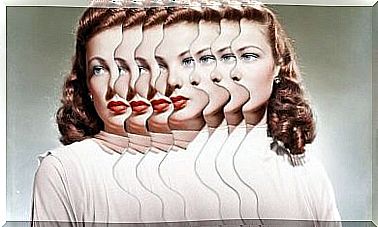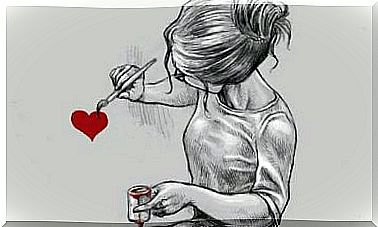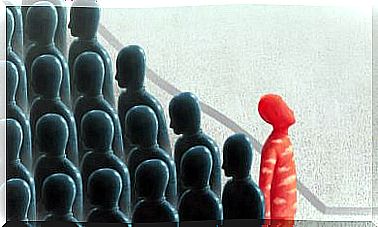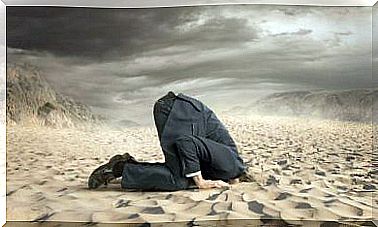They Criticize In You What They Don’t Like About Themselves

Each person is a constellation of wonderful virtues, less showy virtues and quite a few flaws. Neither you, nor me, nor anyone escapes from that. We all have a genius and a saint, but also a tyrant and a cretin. No one goes through life without making mistakes or doing something that they are ashamed of. Therefore, those who criticize us do not have their arguments well founded.
However, there are people who behave as if this were not the case. Without being very clear why, or with what right, there are people who become implacable judges of others. They are able to make a detailed list of other people’s defects, with all the details of the case.
They even determine what actions you must follow to get out of your mistakes, or mark the path you should take to overcome your defects. And they have the luxury of becoming intolerant of your flaws or voids.
When criticism is constant and fierce, it is most likely that we are not talking about a healthy evaluation of the mistakes you make, but about a defense mechanism known as “projection”. In other words, they see you as a mirror: they criticize in you what they don’t like about themselves.
What they criticize in you
Just as we are all admirable to some extent, we are all open to criticism as well. If you are looking for moral defects in Saint Francis of Assisi, you will surely find them. If you are looking for silly exits for Albert Einstein, you will surely find them too.
That is precisely the key to the matter: each one CHOOSES what to see and what not to see in others. Generally, this choice is associated with the way the person evaluating perceives himself or herself. In other words: if you appreciate and rescue the good in yourself, you will also see the good in others. And on the contrary.
However, there are times when critics are not content to see the worst in others left and right, but choose a particular person or group to be the target of their scathing evaluations. Why is this happening?
What they don’t like about themselves

The projection works in the following way: the person builds an opinion of himself, which is sometimes not very impartial and objective. There may be some traits in your personality that are unacceptable to you.
It may be someone who, for example, is deeply selfish in practice, although in theory he makes proclamations in favor of solidarity. Thus, he designs false arguments to justify his selfish behaviors. They are the type of people who say things like “I’m very concerned about your loneliness, but unfortunately I don’t have time to visit you.”
They want to see themselves as generous, but their selfishness prevents them. They are not really aware that they only care about their own interests and that they are not capable of making small concessions to others. They really believe that their pretexts are valid reasons to act as they do.
The problem is that when they detect selfish behavior in others, they raise their voices to point it out and protest. They are outraged and shout from the rooftops their rejection of these behaviors. It seems inconceivable to them that someone would act that way.
If you ask them, they tell you that their own arguments for being selfish are completely reasonable motives: “It’s not that I want to be like that, it’s that circumstances compel me.” Instead, the motives of others are just excuses.
What happens in the background?

What happens in the background is that the failures of others, unconsciously, remind them of their own failures. They do not tolerate in others what they do not tolerate in themselves. Or, in other words, they project their own failures onto others, so as not to suffer the narcissistic wound of recognizing them in themselves.
Criticism for its own sake almost always involves a projection. In other words, it is very common for others to be criticized for being the bearers of traits that we do not like about ourselves. But we do not do it on purpose, we simply have not become aware that this happens to us.
It is worthwhile that we be attentive to what we do not support from others. If we sharpen our observation, we will probably realize that this intolerance speaks more about ourselves than about others.
In the same way, when we are criticized we should not swallow it whole. It would be wise for us to think about why that person chose to see that negative element of us. It is very likely that we will come to the conclusion that their criticism, in fact, points towards a hidden territory of themselves, and not towards our behavior.
Images courtesy of Christian Schloe









